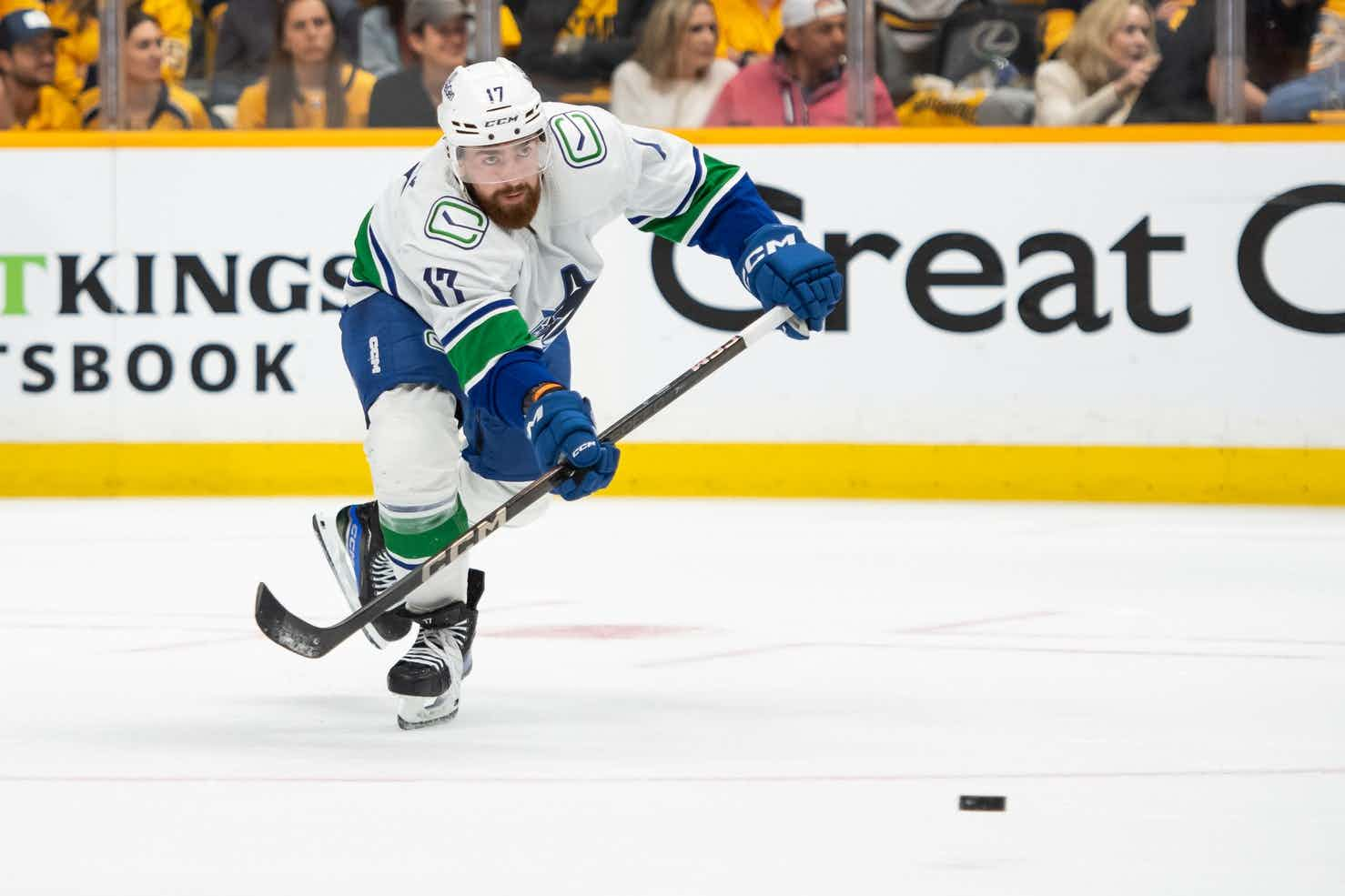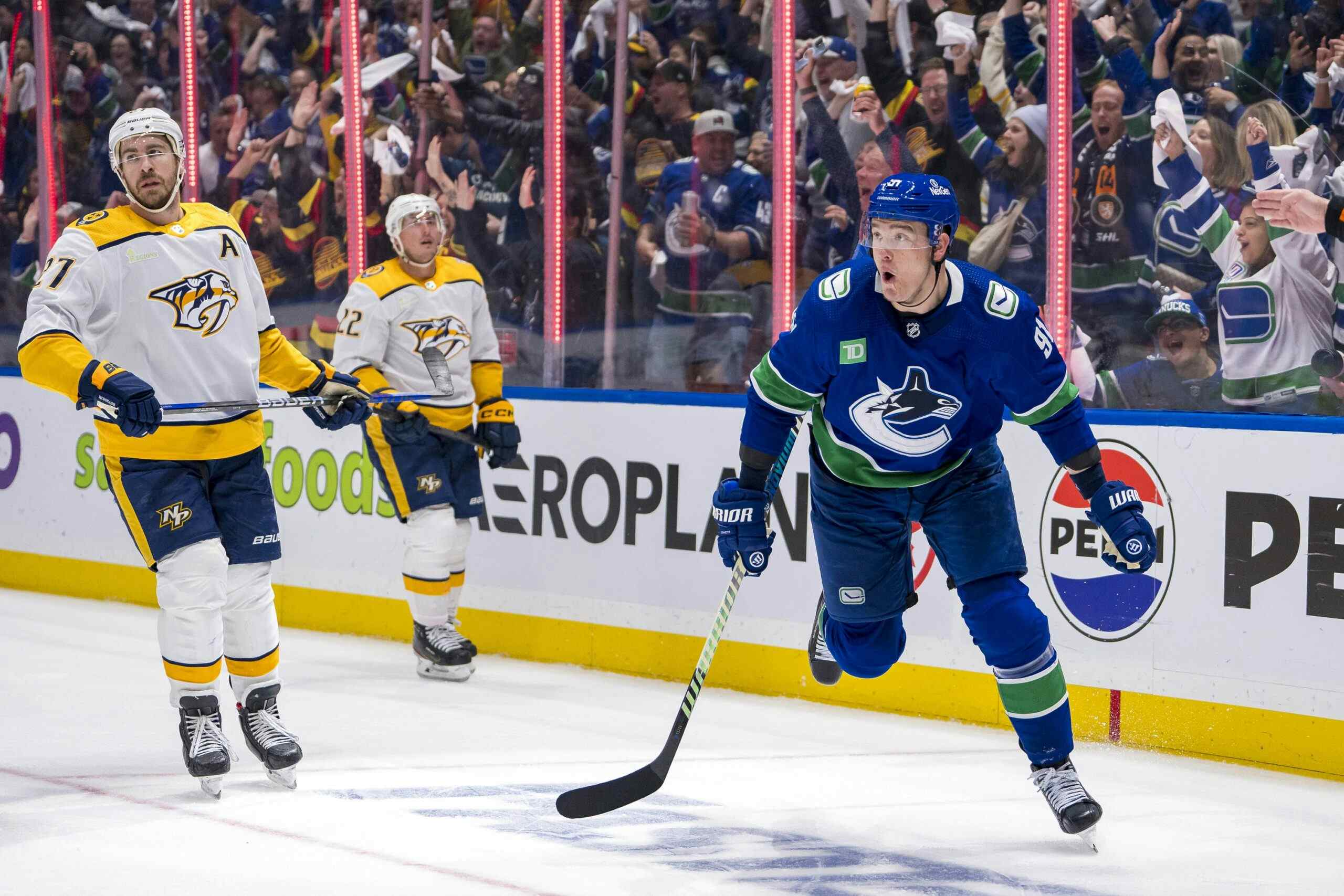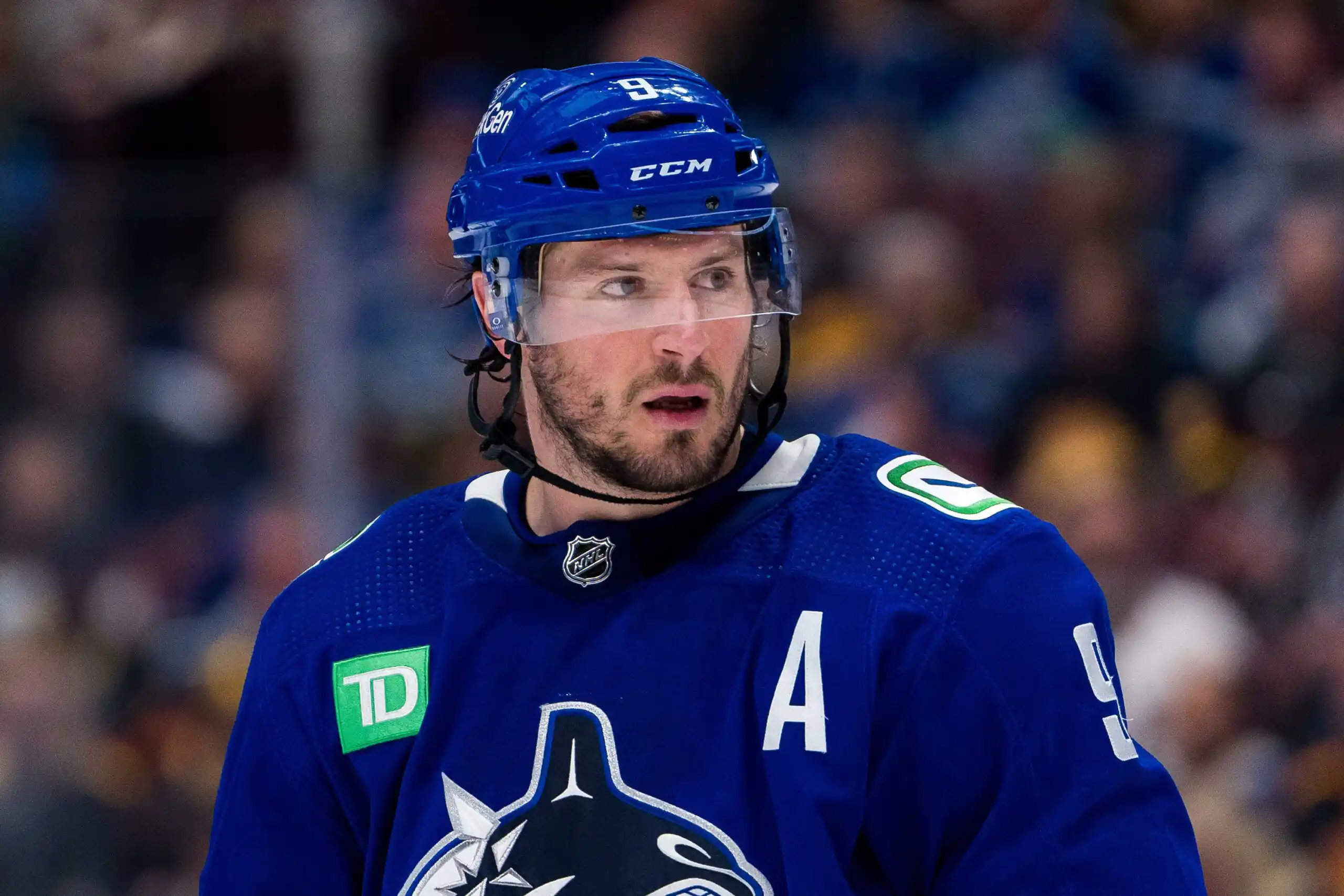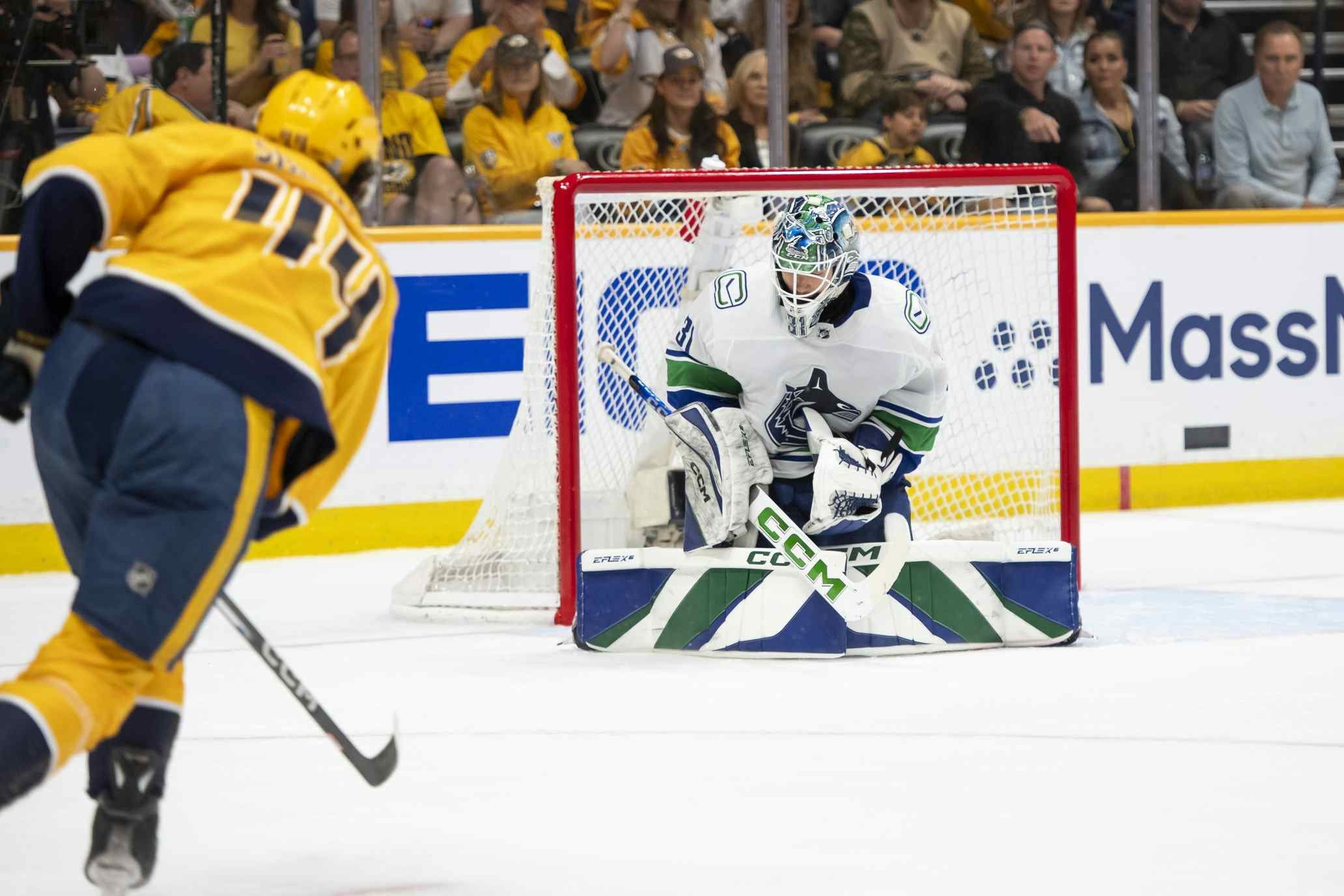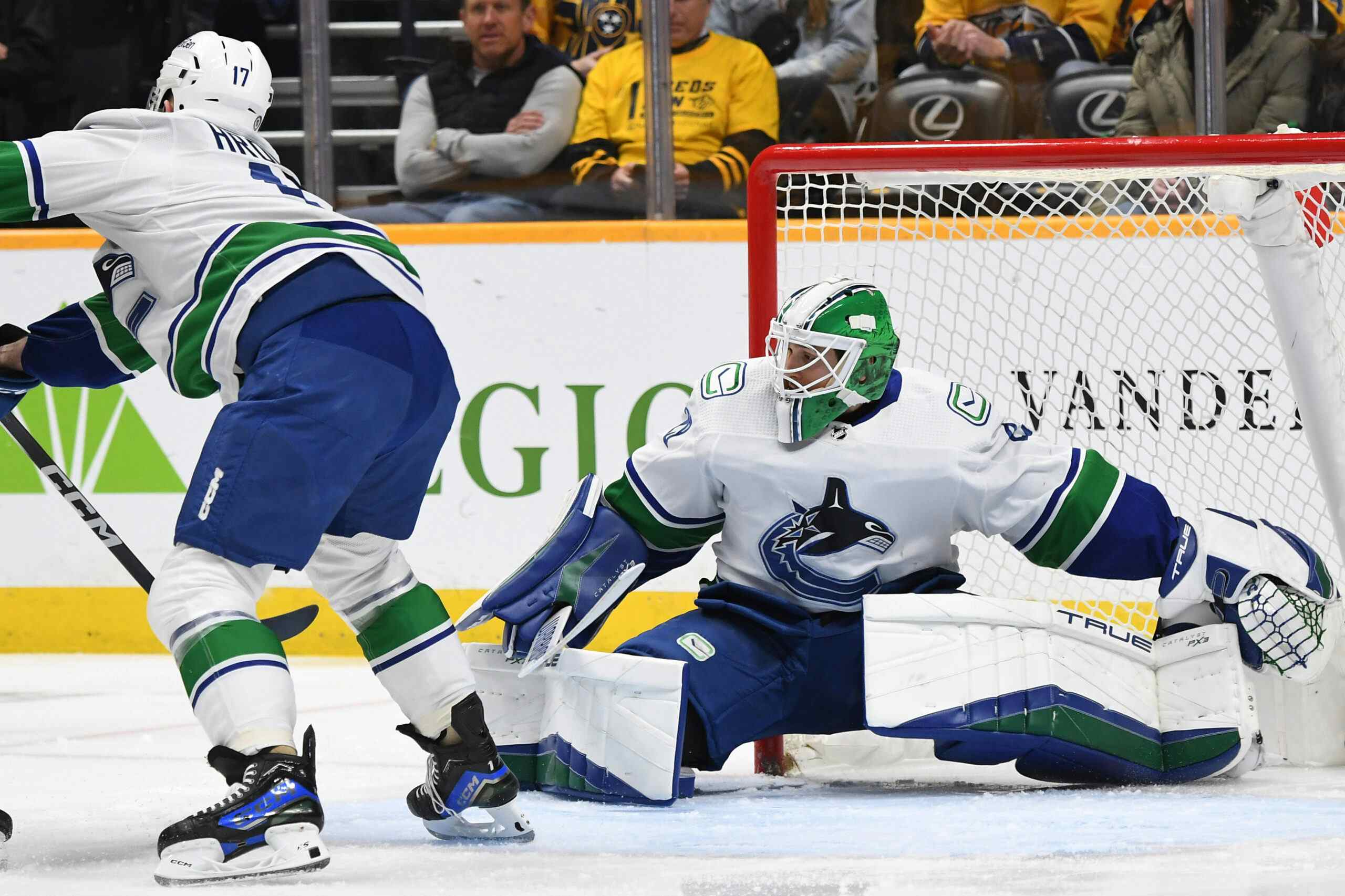Jim Benning spoke today, and I listened so that you wouldn’t have to

I don’t have the tweet handy, but I distinctly remember Bob McKenzie going on a radio program a few weeks ago and gently, in a which he seems to always do so expertly, pointing out that GM candidate Jim Benning wasn’t exactly one for the spotlight. That he was a simple, understated guy that wouldn’t “wow!” you.
Maybe even more understated than Benning himself, though, was McKenzie’s preemptive warning of the new Canucks GM’s persona. After an introductory press conference so tame that Thomas Drance compared his charisma to that of a “pair of brown dockers”, he joined Dave Naylor and Dave Hodge on TSN Drive to dispel the notion that this is a sample size issue.
Luckily for Jim, the guy that brought him into the fold appears to very well be the perfect complement to his particular skillset on paper, and he appears to be quite cognizant of that. He discussed his working relationship with Linden, the core of the team, and the direction he envisions things going in his most recent public appearance on Tuesday afternoon. We’ll get into all of it just past the jump.
You can listen to the ~10 minute interview for yourself here, but believe me when I tell you that I’ve done you a favour by listening to it myself, and transcribing all of the key talking points below. It’s quite a departure from Mike Gillis’ curious way of handling questions thrown his way over the years, where a brash indignance seemed to be his preferred response route.
Regardless of your thoughts on this particular tact, there’s no denying that he was far more eloquent with his words than his successor, whose responses are littered with “like”, and very casual lingo. Not that there’s anything wrong with that, per se; it’s more of an observation than a criticism. And I don’t mean to insinuate anything, but one thing we do know about Jim Benning is that he has shown himself to be a fast learner. After all, you’d be hard-pressed to blame him for being nervous given the new responsibilities on his plate. With guys like Linden and Gilman around to shelter him on this front, he appears to have landed in perfect surroundings to accentuate his skills while preventing his blemishes from becoming a hinderance.
To start the interview off, he was asked why he believed the turnaround in Vancouver shouldn’t necessarily be a long-term project:
“Our core group is solid. With the Sedins, and Bieksa, and Hamhuis (*he actually said Hamhoose, which I found to be irritating) I think our core group is real solid. They’ve won in the past. I don’t know exactly what happened last year, I wasn’t there, but with Trevor providing direction from the top and everyone understanding their roles and stuff, we’ve got to make sure we find the right coach that’s a fit for that group. I’m hoping we can get back on the right track. They had the 28th worst power play in the league and were the 2nd lowest scoring team.. with the talent that they have, it’s hard to imagine.”
It is hard to imagine; not that they’d be so woeful offensively, but that their previous coach didn’t find it necessary to work out those kinks in practice. Unimaginable, really.
That’s glossing over the main sticking point for fans of the team, here. The thing that quickly jumps out is that one Ryan Kesler wasn’t mentioned amongst the team’s “core group”. Sure, it could be something of an omniscient response by Benning, who may very well already know how this story plays out.
But chances are that this is much about nothing. He did also leave out names like Edler, Garrison, Burrows, and Sixtito, but obviously the Kesler omission is the glaring one because of everything that preceded his arrival here.
For whatever it’s worth, later in the interview Benning admitted to not having spoken to Kesler since taking the job last week, and that he had full intentions on discussing the situation with him in the next few days. Considering the gravitas of the situation, it’s easy to imagine it being either 1A or 1B on his “To Do” list at the moment.
With the other one being the coaching vacancy, of course. When asked about the job hunt Benning retorted (shudders), that the plan is to “finalize a list of guys and start the interview some time next week”.
All of that leading up to this point was an appetizer of sorts, because the largest chunk of the segment was spent discussing his aforementioned, and presumably symbiotic relationship with Trevor Linden:
“How it’s going to work — if I’m talking to other General Managers about trades or for the draft, I’m always going to keep Trevor up to speed as to what’s going on. Any decisions we make he’s going to be part of the process. It’s more about communication than anything else.I might go to him with something and I’ll say ‘I think this is a good move and we should make it’ and he’ll tell me that he doesn’t think so and we’re not going to do it. Basically he’s my boss. I’m going to do the work and get his input on what his thoughts are, and from there we’ll make a decision.”
Would the same hold true the other way around?
“Yeah, because we’re going to be honest with one another. Our goal is to build a team that competes for the Cup and I’m always going to be honest with him, and he will be with me. If we don’t have that honesty we don’t have anything.”
Wisdom. At the very least, we can take solace in knowing that if this particular job doesn’t work out for Benning, he’ll always be able to fall back on doling out sage advice on how to keep marriages intact. Hopefully his toes aren’t stepped on when it comes to personnel decisions by the guys ahead of him on the ladder, or that joke I just made could quickly become a sad reality.
Finally, the interview wrapped up with one last question about the style of team he envisioned the Canucks being under his regime, and whether they’d need to try and make some changes to attempt to keep up with their peers:
“There’s no getting around that, now you have to win your division to keep moving forward. You look at the LAs, the Anaheims, the San Joses; they’re big, physical, heavy teams. We don’t want to lose our identity of using our speed and creating when we have the puck, but maybe we can start implementing some bigger guys, some more physical players to protect the puck.. so that we can play both styles. Chicago was a good example. They could play fast, and they could play heavy. That’s where we want to get to, to have a good mix.”
I have to admit that I audibly groaned as I typed out the opening part of the response, before Benning quickly steered things back in the right direction. We often make fun of buzzwords like “heavy” on this platform, but that shouldn’t be misconstrued as thinking that they aren’t part of the puzzle as a whole. All things being equal of corsi you’d rather have a more impressive physical specimen of a player, but that’s just the problem — they aren’t.
These sorts of qualities are so frequently fetishized by hockey people that they’re often the root of many of the mistakes made by teams, which we proceed to scrutinize and laugh at. As long as the plot isn’t being lost, and skill isn’t being foregone for these sorts of nebulous fantasies that have long been ingrained in hockey culture, there’s no quarrel to be had here.
Recent articles from Dimitri Filipovic

